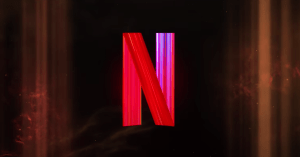American Gods has emerged as one of the best new series of the year, adapting Neil Gaiman‘s novel through Bryan Fuller‘s unique vision.
While the Starz show is telling the story of Shadow Moon as he becomes immersed in the world of gods old and new, the new series is also taking liberties as it expands the narrative, allowing it to consist across multiple seasons.
Videos by PopCulture.com
Part of that expansion includes a larger role for Bilquis, the nearly forgotten God of Love.
Played deftly with nuance and a commanding presence, Yetide Badaki portrays the down-on-her-luck deity in one of the most arresting scenes, not just in the premiere, in the entire first season.
Though she’s played a limited role thus far in the series, Badaki’s character will have a huge impact on the series moving forward. I was lucky enough to speak with the talented actress about her influences, the source material, and how she connects to the narrative as an immigrant from Nigeria.
On Her Influences
ComicBook.com: Who is your favorite character from the novel?
Yetide Badaki: It’s interesting, I think it’s actually been changed over time since just in the book to seeing it in the series, with everything that’s been put together with Neil [Gaiman] and Bryan [Fuller] and Michael [Green]. I’m now a huge fangirl for Laura Moon.
But reading the book, I think initially I was just smitten with the idea of Anansi, having grown up with those tales as a child in Nigeria. And so that really stuck out for me.
Is it lame for me to say that even when I first met Bilquis I loved her? That’s kinda lame, right? [laughs]
ComicBook.com: How do you approach this character? Did you have to discard any preconceived notions from the novel?
Badaki: Here’s what’s interesting, you don’t always get this so I realize how lucky I am. But from the time I read the book to the time of the audition, that was 15 years. So there was a lot of time for an initial reaction, an initial idea about the character and who she is, etcetera, to seeing this as an audition scene that Bryan and Michael had adapted to screen where a lot of ideas and a lot of growth had the chance to happen.
It was a really interesting conversation in that what had started to germinate for me, for the character, was then able to be filtered through this amazing stuff that Bryan and Michael are doing with it, with their amazing imagery, and their amazing artistry, and their incredible storytelling.
As far as preconceived notions, I think I had to ask a lot of questions of myself of the ideas of sensuality and intimacy, especially self identifying as a geek. And I say, “wait, what, you want me to play a love goddess? Are you sure about that?” And that in itself was already an idea of preconceived notion of self and what intimacy is that, yes, I did have to discard.
So in that way, there wasn’t much judgement of the character, but I think in many ways I was judging myself. And I’ve joked with people that that journey from geek to finding that goddess from somewhere within, that if I can do it anybody can. So, yes, there were some notions. Maybe not the ones that people might expect. But there was just a lot of evolution with the character and with self.
On THAT Sex Scene
ComicBook.com: How was it working with Joel Murray for that scene?
Badaki: Joel Murray is wonderful, ok? It was hilarious because we only got to meet briefly, really really briefly, like, running past each other in costuming before we started filming together. And thank goodness it was Joel Murray because he is funny, he is sweet, he’s so caring.
And I remember him saying “yeah, you know, this is kind of my first time doing something like this.” And I said “Yeah, same here.” And we said, ok, we’re gonna jump into this together. Yeah, he’s absolutely lovely, I feel so lucky that we got a chance to work on this scene together.
ComicBook.com: In the scene, you exhibit this subtle transition from being nervous and shy, to being a goddess who demands worship. What was the process for doing that shift?
Badaki: I think there is something to the search for human connection and for true intimacy that is many layered and that working on this scene and working on Bilquis brought to the forefront. It’s interesting that in intimacy you can have absolute vulnerability. And sometimes some people may see that as a weakness or in some ways less them, but it’s a two-sided coin. And I think you get to see that in a short space, even in that scene.
So you understand, or at least for me in exploring it with Bilquis, that her greatest strength is also her weakness. She needs that worship, at the same time she NEEDS that worship. [laughs] She depends on it. But it also makes her return a former glory. And so I think that’s where that moment that you were referring to, where you see that coin flip, where you see the vulnerability in that fear of asking for that which she needs. But then you see what happens when she does gain that worship. That worship that all of these gods are fighting so desperately for, because it means their continued survival.
On Connecting To The Story
ComicBook.com: How did you connect to this story about gods immigrating to America, being an immigrant from Nigeria?
Badaki: That was actually one of the first things that really resonated for me when I read the book, all those beautiful Coming to America stories. At that time in reading the book I hadn’t even got my citizenship yet.
I definitely identified with… the term “Third Culture Kid.” The idea of a TCK, which the term actually had to be created for these individuals that came from one culture into another culture but weren’t quite of either, which created a third. And the interesting thing about the United States is that it’s created of a lot of different, of what I like to say, different threads from different spaces that add to this tapestry to create this country. And that creates its own kind of very specific yet not fully identified culture.
And as someone that just recently having become a part of this country, I definitely identified with that feeling of, that slight feeling of other—and I think we see this in Bilquis too—of a remembrance of a different existence, of an attempt to find my way in this present one, and—especially at that time of reading it—not really feeling like I was… a part of either. Which, growing up, that definitely created that feeling of ‘other’ that has been so amazing and so fascinating to be able to play with, with Bilquis. Someone that’s kind of out of the space and out of the time, not quite of the time.
I think I also mentioned the analogy of a silent movie vixen trying to exist in a ‘talkies’ world. And so that is definitely with Bilquis… as with a lot of the old gods, the idea of them bringing their own individual thread to the tapestry of this brave new world.
More American Gods News:
- American Gods Shirts For Charity And More Licensed Products Announced
- Neil Gaiman Stories to Read If You Like American Gods
- Pivotal Scene Almost Gave American Gods Star Hypothermia
- American Gods Renewed For Season 2
American Gods is produced by FremantleMedia North America. Bryan Fuller(Hannibal, Pushing Daisies, Heroes) and Michael Green (The River, Kings, Heroes) are writers and showrunners. David Slade (Hannibal, The Twilight Saga: Eclipse) directed the pilot and additional episodes. FMNA’s Craig Cegielski and Stefanie Berk are executive producing the series along with Fuller, Green, Slade and Neil Gaiman.
Photo Credit: Canada Film Capital








